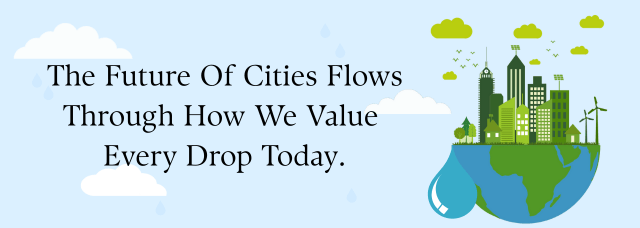How Do We Reduce Waste Water in Urban Areas?

Introduction
Urbanization is rapidly reshaping the way we use and manage water. With growing populations, rising water demand, and climate change putting pressure on natural resources, urban water waste has become a serious concern. Reducing water waste in cities is not just an environmental responsibility—it’s an economic and survival necessity
From outdated infrastructure to excessive domestic consumption and industrial discharge, multiple factors contribute to water wastage in urban environments. Fortunately, there are effective and scalable solutions that cities can adopt to conserve water and ensure a sustainable future.
1. Upgrade to Smart Water Infrastructure
One of the biggest culprits of urban water waste is leaky, aging infrastructure. Upgrading to smart meters, pressure-monitoring systems, and automated leak detectors helps utilities track usage and identify issues in real time. Cities like Singapore and Los Angeles have adopted smart water systems, significantly reducing losses.
2. Promote Rainwater Harvesting
Rainwater harvesting offers an efficient way to reduce dependency on municipal water systems and prevent runoff wastage. Encouraging rooftop systems for residential and commercial buildings can help supplement non-potable water needs such as gardening, cleaning, or flushing.
3. Implement Greywater Recycling Systems
Greywater—wastewater from showers, sinks, and laundry—can be treated and reused for landscaping or toilet flushing. Cities can incentivize households and housing societies to install compact treatment units that save thousands of litres per day. For example, it’s common at Green-certified buildings (LEED, IGBC), Eco-resorts and hotels, Smart cities and urban townships.
4. Encourage Sustainable Industrial Water Practices
Industries are major water consumers and polluters. By adopting water-efficient technologies and recycling processes, industries can dramatically cut down waste. Local governments should mandate effluent treatment plants (ETPs) and promote zero-liquid discharge (ZLD) systems.
5. Community Awareness and Behaviour Change
Often, small behavioral changes—like fixing dripping taps, turning off water while brushing, or using water-saving appliances—can have a massive cumulative impact. Cities must invest in awareness campaigns and offer incentives for water-efficient fixtures.
6. Regulatory Policies and Incentives
Municipalities need robust water conservation laws—mandating rainwater harvesting, penalizing waste, and offering subsidies for sustainable practices. These policies can guide residents and businesses toward responsible water use.
Conclusion
However reducing water waste in urban areas is a shared responsibility between individuals, industries, and governing bodies. By embracing sustainable infrastructure, recycling techniques, and conscious usage, cities can secure their water future while mitigating environmental harm.
At Sai BioCare, we offer comprehensive wastewater management solutions, from rainwater harvesting systems to advanced STPs, ETPs, and water reuse consultations. Together, let’s build greener, water-smart cities.
